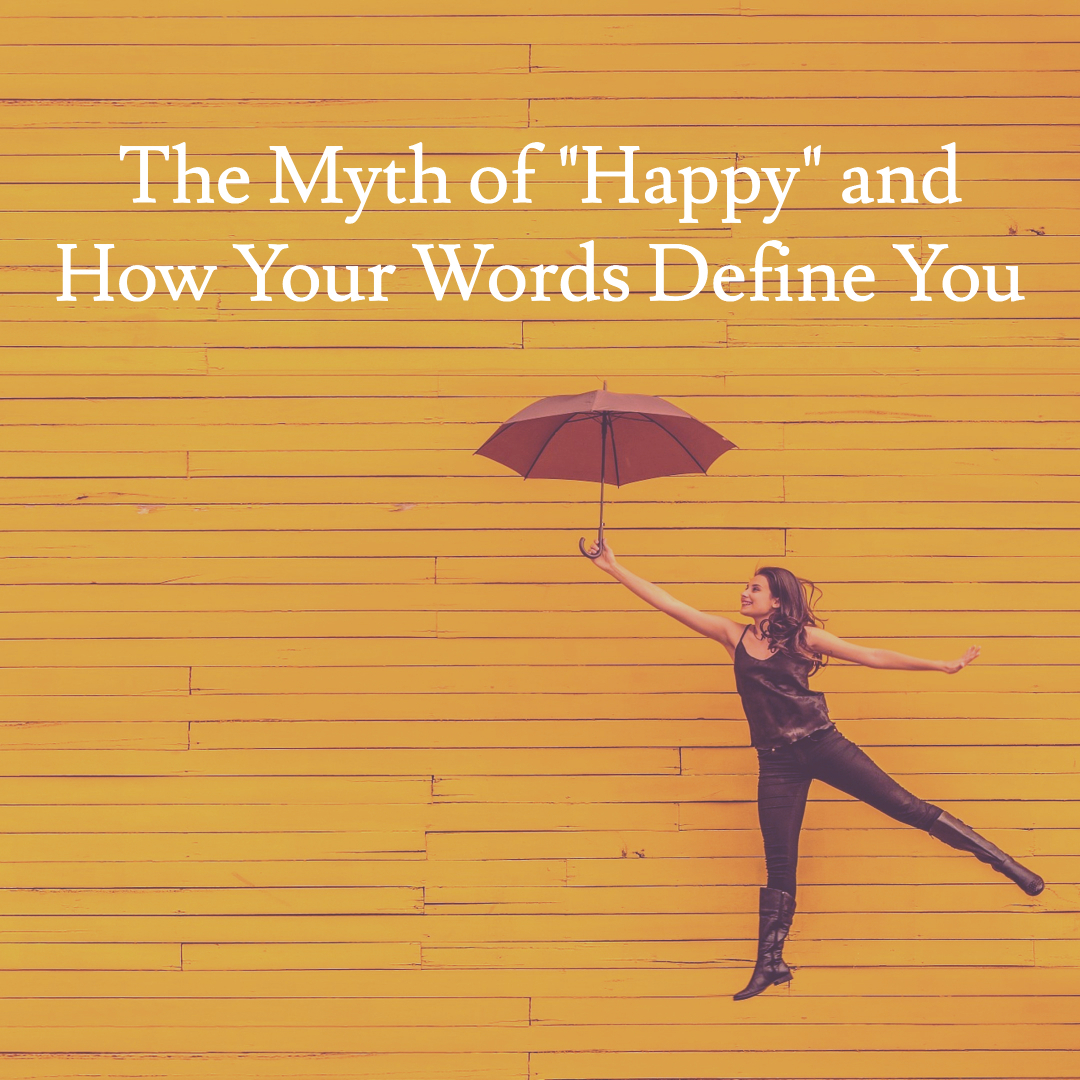Happy.
Sad.
What do those words mean to you?
Do you have a particular definition you attach to them? And do you know where – or when – you learned to define them that way?
The first time I read this Oatmeal comic about being happy, I had quite a few feels.
(If you haven’t seen the comic, go take a look. It’s beautifully done.)
I felt resistance around the idea. It grated — how can a human claim to never be happy? Isn’t that one of the built-in experiences that comes along with these bodies and minds?
The way Matthew sees it, there is no middle ground. You’re either happy or unhappy.
Happiness is a permanent state. Once achieved, “you get to sit atop your giant pile of happy forever.”
I think part of why I had a hard time with his explanation is because I see a looser definition of the word — I see an entire spectrum of emotion where happy and unhappy are just points along the graph.
And maybe that’s what he’s actually getting at.
Matthew says that the definition of happy doesn’t work. “It’s a monochromatic word used to describe a rich, painful spectrum of human feeling.”
What I do agree with is this: the way we use and define words has a massive influence on us.
Language is a gray area
Even with all its complexity, human language is often not cut out for describing things that you feel or experience on more than a physical level.
And yet we so often get caught up in the idea that we have to strive to be “happy” or “content”.
I have a hard time with certain words.
“Content” is one of them. To me, the word indicates settling, allowing ourselves – or pretending – to be okay with a situation that is less than ideal.
“Busy” is another. I cannot stand this word, and what it has come to mean. It’s an indicator that our lives are full of stuff we’d rather not be doing, or that other people are making us do. That there’s no time for the important things. That time is slipping away, out of our control.
How can you be more cognizant of the words that you use, and the story that those words are telling about your life?
How yoga can help
Yoga and meditation both help you ride the waves of life.
You don’t struggle to avoid the lows.
And you don’t scratch and claw and bite to stay up in the highs.
Instead, you do your best to go with the flow. To shake off the bad times, and to enjoy the good ones while they’re here.
You allow yourself to be totally in the moment, experiencing every bit of the emotional spectrum — but not allowing yourself to become attached to or defined by those emotions.
Unraveling the human experience
So maybe Matthew is right.
Maybe we should all do things that are meaningful, even if they don’t make us happy.
Because isn’t that what this whole human experience is about?
Experiencing it?
You experience life from within the lens of your life.
And I have a different experience because my internal landscape and life story are different.
And that’s a beautiful thing.
How can you be more present to the experiences that life brings your way? And do you have words that you feel are limiting by their very definition? Let me know in the comments!

Leave a Reply